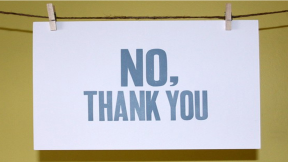
On the surface, the party has all the trappings of a traditional prom: Fancy dresses, fancy food, and fancy footwork on the dance floor. But two key components are missing: boys and alcohol.
The prom is an annual rite of passage in which students celebrate their successful graduation from high school in the United States and Canada.
While this is a milestone virtually all parents and families are willing to help their students fete, what becomes an issue is how the celebration is conducted. For Muslim parents, the primary objection to their children attending the prom in public and private schools that are not Muslim is the presence of intoxicants and the opposite sex.
Enter the alternative prom, where students can party without compromising on principle.
When Yumna Aziz* and her friends decided to help organize an alternative prom at her full-time Islamic school in suburban Chicago, she was carrying on an established tradition. Her school had been hosting the event for years, allowing students to celebrate graduation in an Islamic environment.
“(The event) has always been the senior class's way of giving back to the students in the lower grades, and showing appreciation to those many of us have been going to school with for numerous years. The bash is planned primarily by the senior girls, and it gives us the opportunity to bring students to an event where we can have a good time in a fun, yet safe environment at school,” Aziz explained.
“As we grew up seeing the previous senior classes host this event as well, our class had our own unique ideas and aspects that would represent ourselves especially, and so this was a way of doing so,” added Noor Saleh*. “Also, the funds we raise from this event are donated to a charitable cause on behalf of the graduating class.”
“Everyone looks forward to seeing what the seniors have planned and what will make them different from previous senior classes,” says Aziz. “Each year the theme for the event is creative and fun.” This year’s theme: Willy Wonka, from the book Charlie and the Chocolate Factory by Roald Dahl.
Sobering statistics show that parents’ concerns about the nature of the prom, and the need for an alternative, are not unwarranted:
- Roughly one-third of alcohol-related teen traffic fatalities occur between April and June — the peak of prom and graduation season.
- According to Mothers Against Drunk Driving (MADD), car crashes are the leading cause of death for teens — about 25% of teen crashes involve an underage drinking driver. Every year, 1,415 people under age 21 die from alcohol-related crashes.
- 25 percent of American women have experienced sexual assault, including rape. Approximately one-half of those cases involve alcohol consumption by the perpetrator, victim, or both.
For Amber Rehman and Shadi Sakr from Calgary, Canada, the alternative prom their children participated in, called the “Emaan Awards”, definitely offers a better way to celebrate.
“The beauty of having a graduation party like the Emaan Awards, is that you get to see the success of all the people in your community and it helps everyone feel included in the success stories which aren't often shared in the media about Muslim youth,” said Rehman.
It also helps re-focus the purpose of the event.
“I asked my kids about whether or not they benefit from the alternative prom ideas. This is what they had to say: ‘The alternative proms only matter if they focus on academic achievements because they help us celebrate what we did. This helps us come together for a purpose other than just a dance and party,’” she added.
“My daughter also felt that if prom night is more focused on the achievements of individuals, people aren’t as concerned about who they will go to the dance with, so it doesn't put awkward attention on kids.”
*Names have been changed at the request of the interviewees








Add new comment